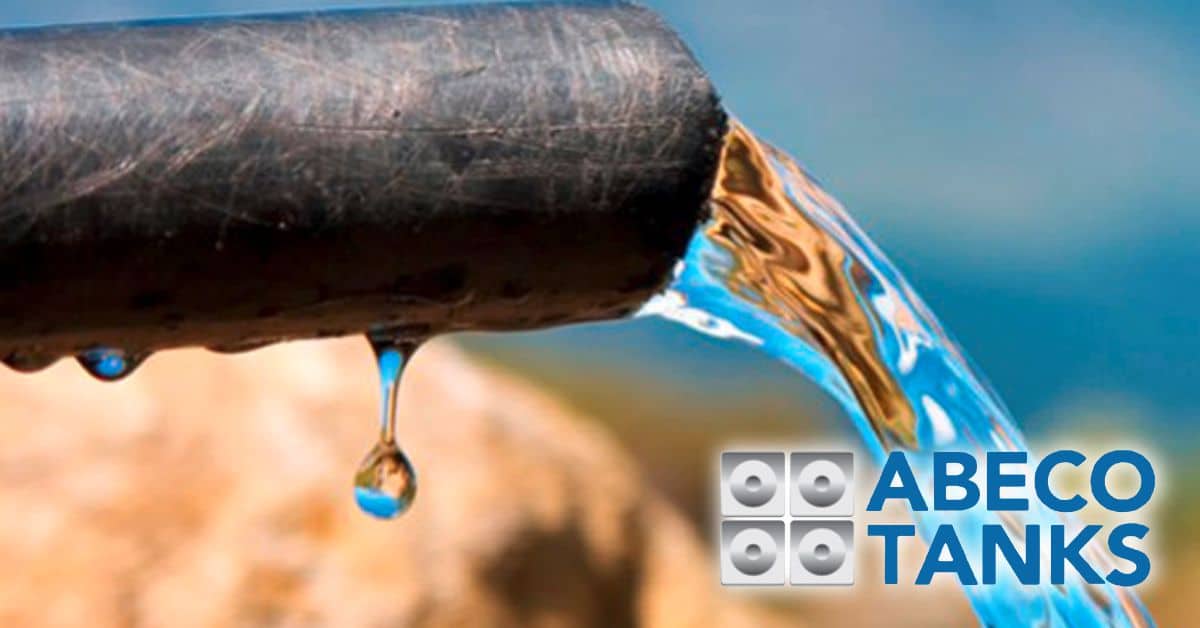07 May Abeco Tanks Drives Water Storage Solutions in Zambia
Abeco Tanks Drives Water Storage Solutions in Zambia
A strong sustainable water infrastructure in any country is imperative and is one of the basic building blocks of a successful economy.
Agriculture, business, mining, and industry are the pillars of the African continent’s developing economies and water is imperative for all four to be successful.
Copper mining in Zambia contributes significantly to the Zambian government revenues and copper mining needs a large amount of water to function. It also contributes to the job market significantly.
The Chief Operating Officer of Abeco Tanks, Mannie Ramos Jnr says, “Abeco have been part of the water scarcity solution on the African continent for over 35 years.”
“We were founded on the premise that water would become Africa’s most important currency and have been assisting businesses and communities to action a continuity plan which is to bank water.”
Abeco’s mission is to reduce the negative impact not having water has on businesses, communities and economies.
Abeco Tanks offers water storage solutions in 35 countries worldwide including the Middle East, Central America, and Africa. Abeco Tanks pioneered the idea that water tanks should be seen as water banks – savings account for times of scarcity and times of crisis such as Covid-19.
“The Abeco water tanks act the same as savings account for businesses and communities to keep running during times when water is scarce,” Ramos says.
The company has been instrumental in assisting communities and businesses with water tanks. These tanks are manufactured out of high-quality steel and can hold from 1,800 litres up to 50 million litres of water. They have changed the lives of communities by becoming permanent structure with easily located water on tap.
The tanks have assisted with building job opportunities as three out of four jobs need a sustained water supply.
Families have access to drinking water and can improve their sanitation and hygiene practices. Women and children no longer have to walk for hours daily to collect water which has allowed for children to stop missing school and for women to be able to explore job opportunities and so add to the economy.
Farmers are now able to access a regular water supply to water their crops and so provide an income and future for their families. They are also able to supply the community with much-needed food.
“Educating people to view water as a valuable commodity and to no longer waste it has become imperative,” Ramos says. “If water is wasted there will be limited water during times of crisis”.
You might also be interested in Bulk Water Tanks for Sale
What size tank is needed for a community?
Ramos says that this is dependent on the number of people in a community and their average water consumption per day. The average consumption figure in African countries is 47 litres per person per day. Tank sizes vary from accommodating 1800 litres of water to 50 million litres of water, so planning is needed to make sure the correct size tanks are installed for each community.
Why use Abeco Tanks?
The range of Abeco tanks includes rectangular, circular, and custom-made water storage tanks which are either at ground level or elevated.
Their modular design makes them easy to transport allowing for access to rural areas. They are also easy to install not requiring any complicated equipment. All the steel components are hot-dip galvanised preventing corrosion over time. The nuts and bolts are of high tensile grade and all sealants and rubber components are non-toxic and non-tainting.
The tank panels are put through stress tests making sure maximum water pressure is maintained. The tanks are unaffected by ultraviolet rays and light penetration ensuring no algae build-up in the water. They can store hygienic clean drinking water.
The larger tanks can hold up to 50 million litres of water and are therefore effective in meeting the needs of the community. They need to be filled up frequently preventing a water supply interruption and multiple taps can be installed reducing the queues of people waiting for water. The solution is effective and efficient.
Conclusion
Approximately 4.8 million Zambians do not have access to clean water and 6.6 million to satisfactory sanitation. This results in lack of food and starvation, high rates of childhood malnutrition, high birth mortality figures, lack of satisfactory education, disease, lack of job security and, all of these impact on economic growth.
Access to a steady supply of water is imperative for every human being’s health and well-being. These tanks are permanent solutions for a serious problem. Their existence will be life-changing for the Zambian people and the fact that they last for up to 50 years makes them very cost-effective.


